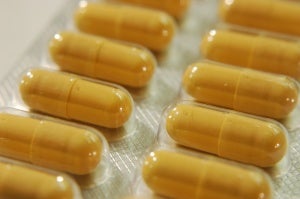
The US Food and Drug Administration (FDA) has discovered failures at several drug compounding centres after a series of inspections, prompted by a meningitis outbreak last year that killed 51 people.
A review of 30 reports, which cover inspections from January to March, highlight several short-comings, such as failures in following set procedures to prevent contamination, in appropriate protection worn by people working in sanitary areas, and inadequate testing to determine expiration dates, Bloomberg news reports.

Discover B2B Marketing That Performs
Combine business intelligence and editorial excellence to reach engaged professionals across 36 leading media platforms.
It is thought that the FDA will use the reports, known as 483s, which they do not normally publish, to gain more authority over the industry.
The new focus on the drug compounding centres – where drugs are mixed on site at a supposedly small scale – occurred after New England Compounding Pharmacy Inc was shut down in October last year after a contaminated steroid shot mixed and developed by the pharmacy was linked to a meningitis outbreak that killed 57 people.
Federal investigators determined that the company was producing drugs on a much larger scale than it should have in anticipation of prescriptions and was producing drugs in a way much more like a traditional drug maker.
Compounding pharmacies are obliged to follow standards set by the US Pharmacopoeial Convention, a non-profit standard-setting organisation, and not the FDA, the news agency reported.

US Tariffs are shifting - will you react or anticipate?
Don’t let policy changes catch you off guard. Stay proactive with real-time data and expert analysis.
By GlobalDataRecently, several compound companies have voluntarily recalled some of their sterile drugs. Last month, Med Prep Consulting Inc recalled all of its sterile drugs after contaminants were found in bags of an intravenous solution and Clinical Specialties Compounding Pharmacy also pulled all sterile products after five people contracted serious eye infections associated with a cancer drug used to treat people with loss of vision.
Drug compounders do not want to be FDA regulated as they believe this could cause shortages in the system.
“If a pharmacy waits to do everything in compliance then patients won’t get treatment,” said Jeffrey Gibbs, a lawyer with Hyman, Phelps & McNamara, which represents compounding pharmacies, told Bloomberg.
International Academy of Compounding Pharmacists (IACP) chief executive officer David Miller told the news agency that the FDA should establish which companies are conducting drug manufacturing and use its existing powers to regulate rather than getting involved with pharmacy regulation.
FDA Commissioner Margaret Hamburg, in a blog post said that inspectors had been delayed doing their work by being denied full access to the pharmacies.
IACP has estimated that the compounded drugs business accounts for 1% – 3% of the $300bn US prescription market.
Image: It has been estimated that the compound drug business accounts for 1% – 3% of the $300bn US prescription market. Photo courtesy of Petre Birlea.




